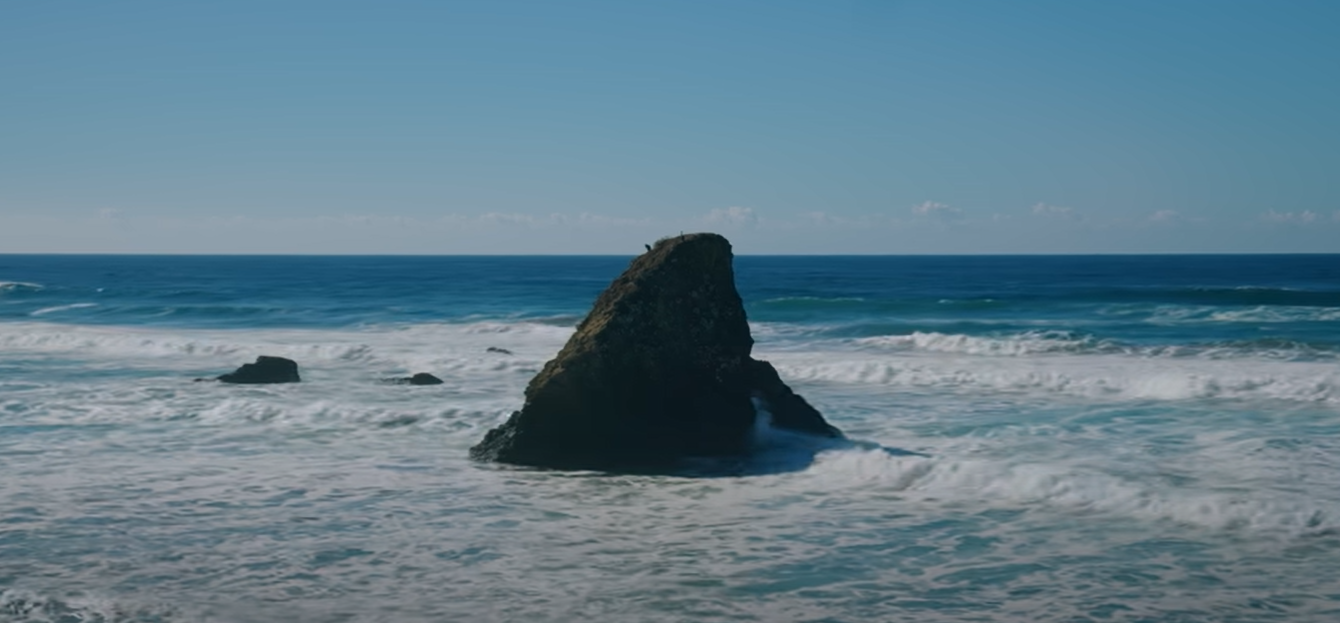[ALBUM REVIEW] Mac DeMarco chooses the rhythm of the road with Five Easy Hot Dogs
Mac DeMarco’s sixth studio album, Five Easy Hot Dogs, is the record of a vagabond. Released on Jan. 20, the album creates a soundscape of DeMarco’s solo road trip from small town coastal California to New York City.
Each track is a stop on DeMarco’s road trip, named after the place where it was recorded. The instrumentals invite the listener to join DeMarco on his journey, whether that is winding through the Pacific Northwest, hitting speed bumps, or driving with the windows down. Though each track on Five Easy Hot Dogs is alone repetitive, the album’s sound isn’t droning or boring; DeMarco never settles into one place for too long before picking up and hitting the road again.

(Screen capture from “Five Easy Hot Dogs” by Mac Demarco on Youtube)
The album begins in the West, carrying a sound reminiscent of its mythology—one of lone travelers, kicked up dust, and the steady rhythm of being on the road. DeMarco’s sound is similar to Bruce Kaphan or William Tyler, instrumental Western ambient. The first track, “Gualala,” sounds vaguely like something off DeMarco’s 2017 album This Old Dog, but brought to a minor key, as emotional pining is replaced by monotonous curiosity. With the first notes, DeMarco reaches for a new sound, separate of relationship referencing lyrics that made up his previous work; This Old Dog has been laid to rest.
With his newest album, DeMarco takes the leap to actual solitude, void from vocals or a single geographical tether.
The fourth track on the album, “Portland,” starts out with guitar, bass, and snare, all quintessential to DeMarco’s easygoing sound. Midway through the song however, the countercultural and alternative energy of Portland emerges. The song is interrupted by something resembling a minor xylophone. It sounds straight out of an elementary school music class where students are experimenting with new instruments. But DeMarco is a music veteran, his direction towards the funky and discordant aren’t mere experimentation, it is his guide for this section of the road trip.
The final track’s title, “Rockaway,” likely refers to DeMarco’s home in Far Rockaway, the ocean facing tip of a peninsula in Queens, isolated from the bustle of New York City. The Western feel is now a lingering memory, Rockaway is more pragmatic and resolved than its Californian and Canadian counterparts. The album finishes with another repetitive rhythmic track without much resolution, leaving the listener geographically distant, but maybe not so far from where the record began in California.
DeMarco has flirted with isolation before—his second most recent studio album, Here Comes the Cowboy, has tracks titled “Nobody” and “Finally Alone.” In “Finally Alone,” he sings “sick of the city, locked in with all the pretty people” then later, “it turns out the cowboy dreams of the city.” Four years later, with Five Easy Hot Dogs, DeMarco puts his theory to the test, exploring the highways, towns, and cities of the United States and Canada just to end up right back at his home in Rockaway.
This record doesn’t accomplish much if success is measured in growth or thought probing reflection, but that was never DeMarco’s goal. Five Easy Hot Dogs brings background music to the foreground. With his newest album, DeMarco takes the leap to actual solitude, void from vocals or a single geographical tether.
My name is Siri Pattison (she/her). I’m the Opinions editor for The Rubicon Online. At school, I’m involved in the Antiracist Group, Student Activities...